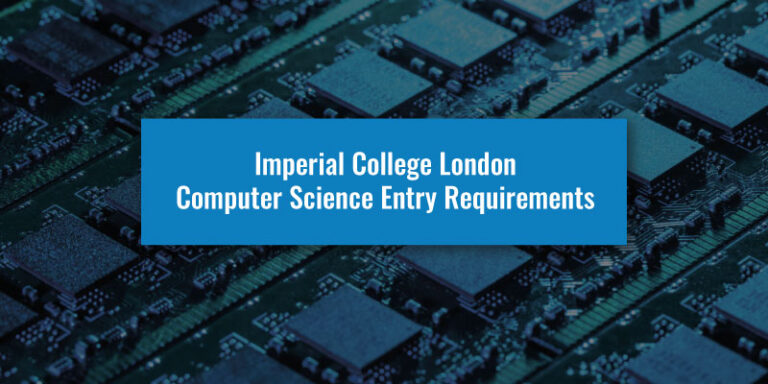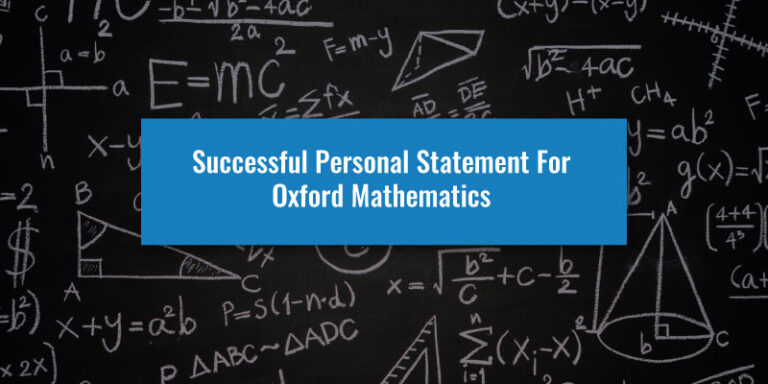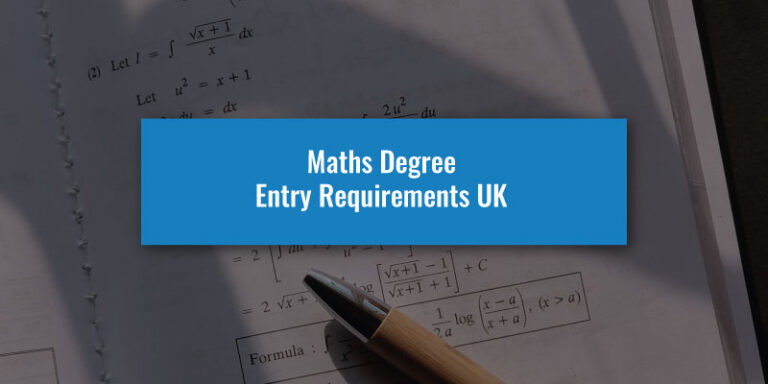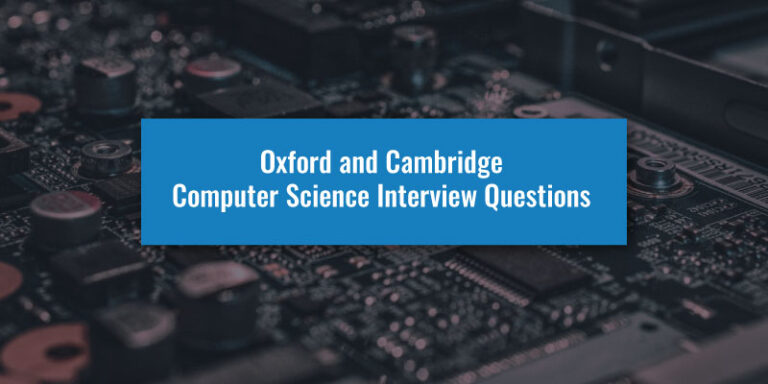Are you curious to know what it is like to study Computer Science at Cambridge?
Reading about a course only tells you so much, you do not get the reality that those who are studying it can provide.
Final-year student Mark Englander talks us through what life as a Computer Science student at Cambridge is really like.
Get To Know Me
My name is Mark Englander, and I am currently in my final year of studying Computer Science (with Mathematics) at Churchill College, Cambridge.
A-Levels will become very easy if you master STEP questions.
Need help securing your place at Cambridge to study Computer Science?
We help you craft the perfect Personal Statement, prepare for the TMUA and teach you how to Interview effectively.
Discover our Oxbridge Computer Science Premium Programme by clicking the button below to enrol and triple your chances of success.
All about Cambridge computer science
Computer Science is heavy on both the theoretical and practical sides. A lot of the theoretical frameworks are Mathematical, and a lot of the coursework is practical.
One misconception that I’d like to clear up is with regards to this: taking the Cambridge Computer Science course will not starve you from the practical elements or prepare you less well for the industry!
In fact many of the skills required in the industry you will learn on the job anyway, and companies seem to highly appreciate the extra thinking skills learnt during your Cambridge degree.
Furthermore, at Cambridge we just do more content in total, so even if there is a higher ratio of theoretical stuff compared to other universities, that does not mean there is less practical content. Another misconception is that you’ll spend all your time coding.
This is not true! There is much more to Computer Science than just coding.
For example, in my final year, now that I have the choice of modules, I haven’t picked a single programming module, since I prefer non-programming ones. In the first year, there are a few programming courses for specific languages, but these are taught very fast; content is introduced rapidly.
Computer Science at Cambridge is enjoyable, interesting, useful, relevant, and fast-paced. The course certainly goes deeper into each module than other universities in general, and the working environment and people around are intellectually stimulating.
Furthermore, West Cambridge (where the computer labs are) has just opened a new ‘West Cambridge Hub’ which is far cooler than all the other areas in the city: terraces to study on, a relatively cheap lunch hall with good food, many study places, etc.
No matter what area of Computer Science your interests lie in, you’ll probably be happy with this course. We study everything from pure theory like denotational semantics and type theory, to semi-applied modules like information theory and Formal Models of Language all the way to applied modules like optimising compilers and Java.
9 AM: Starting my day
I wake up and do my morning routine. This involves going for a 5km run (or 3-4km if I’m feeling lazy) and showering and getting dressed before my first lecture.
Going for runs around the Churchill College grounds is beautiful. We have a massive plain of grass that the college keeps well kept.
10 AM: Computer Science Lecture
I’ll meet my close friend Gabor outside our rooms and he and I will walk to lectures.
The computer labs, in West Cambridge, are a five minute walk from Churchill College. The route is quite scenic and rural. The computer labs are modern with great facilities.
Nearby (i.e., in the West Cambridge Site) is the sports centre where students can play badminton, tennis, squash, etc., and also the newly built West Hub which is like a community centre – featuring a lunch hall, lots of study space, and in general just a slick studying environment.
12 pM: Lunchtime
Sometimes I’ll go to Churchill and sometimes I’ll go to the West Cambridge Hub. One thing to note is the food prices: while West Hub is somewhat pricey (£7.50 for a main and two sides), it is extremely good quality for the price.
Churchill is much cheaper. I can’t think of a time where I got 1 main and 2 sides and spent more than £4.00. Generally, it’s around £3.50.
The quality of food is heavily debated, but I personally think Churchill food is great! Most days I’ll eat both lunch and dinner in the Churchill halls. I don’t want to spend my time cooking, but that’s a personal choice; some students cook.
1 pM: Study Time
This makes up my primary study period of the day. Sometimes I’ll just stay in the West Hub to study. Sometimes I will walk to the CMS (the Maths department) and use their library to study.
On the way, I often met a cat that I have strongly been suspecting lives in the Maths department.
The library is slick and a very quiet study space for a few hours. One of the main things I do there is my supervision work for FHCI, further human-computer interaction.
The course is relatively interesting and is one of the few courses that doesn’t involve any mathematics; its more about answering questions like ‘How should we make this app look? How can we help our users have a good user experience?’
After this, I’ll do some denotational semantics, a difficult course about proving the properties of programming languages.
Take a look through our collection of Day In The Life articles for more insight into university life:
5 PM: Computer Science Supervision
I have Prolog supervisions. Prolog is a programming language in which the developer tells Prolog what needs to be done, not how to do it, and lets Prolog figure out how to do it by itself. This is called a declarative programming language.
The supervision is with my Director of Studies, who in general oversees the academic aspects of my university life.
If I have any problems relating to my academic progress, I reach out to him. If I have any problems regarding anything else, I reach out to my ‘tutor’ – also assigned by college.
Supervisions are excellent. If you didn’t understand something in lectures, this is your time to have an expert in the field explain it.
In Computer Science, a supervision is generally one hour with one expert between two students. Work is assigned and should generally be handed in 24 hours before each supervision.
They are a relaxed environment, but your brain will hurt thoroughly after a tough one. Supervisions are the number one reason you should come to Cambridge, and it is a deciding reason.
6 PM: Dinner time
Dinner in college! I’ll usually stay at the dinner table for quite a while. Sometimes even longer than an hour. My close friends and I get food in hall every day.
Usually, on a Friday, we will also go to college formal where we will bring some wine and have a good time while eating extremely good (and relatively cheaply priced!) food.
This is generally my break for the day, where my friends and I discuss not only Computer Science but also whatever random nonsense that has happened during the day.
Usually, these evening meals are very enjoyable and sometimes our director of studies will come to sit with us too.
Once I met the son of a Nobel Prize winner just because he had no one to sit with at lunch and he randomly sat with us. Fascinating conversations have been had in the Churchill college dining hall, and many more will happen.
7 PM: Late night reading
I’ll go to Churchill college library at this point for a few hours. I’m relatively tired by this time of the day so I’ll take things lightly. I’ll probably review a lecture, or do some easier supervision work.
Once it gets to around 8:30 PM, I’ll start reading non-academic books. Usually a history book or something I’ve been interested in recently.
It may sound tedious reading this post and seeing that at 7 PM I’m in the library. It’s not! I do this because I enjoy it.
Churchill library vibes are immaculate, and at this point in the day I definitely only have the willpower to study or read something I enjoy.
Yes, I enjoy most of the modules I am taking to the point where studying them is fun. You’ll struggle to do this degree if you don’t enjoy studying, that’s for sure.
10 PM: Time for bed
Netflix, call my girlfriend (who is not in Cambridge), and then sleep at around midnight.
Sometimes I’ll play board games with my college flat. On a Friday I’ll usually go out clubbing with a couple close friends.
Tips On being a successful cambridge computer science student
You absolutely need to want to study your degree.
For example, if you are going to study Economics because you want to go into banking, then don’t. You probably won’t enjoy the academic study of Economics, and everyone is on the same playing field when applying for banking jobs, so study what you enjoy.
The same thing applies to Computer Science: don’t apply because you’ve looked at the highest starting salary.
Our expert tutors will guide you to Oxbridge Computer Science success.
Applying to Oxbridge is immensely competitive, and you must give yourself the best chance of success. We help you craft the perfect Personal Statement, achieve a highly competitive TMUA or MAT score and teach you how to Interview effectively – covering all areas of your Oxbridge application.
Discover our Oxbridge Computer Science Premium Programme for comprehensive admissions support by clicking the button below to enrol and triple your chances of success.







